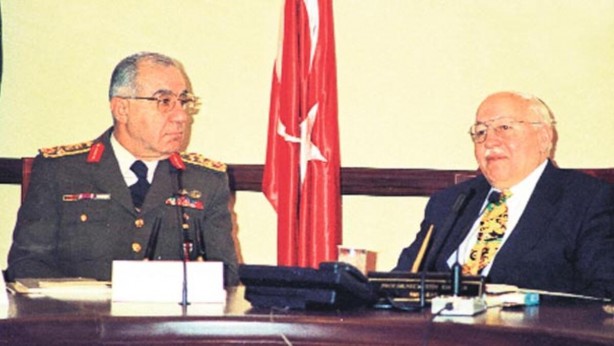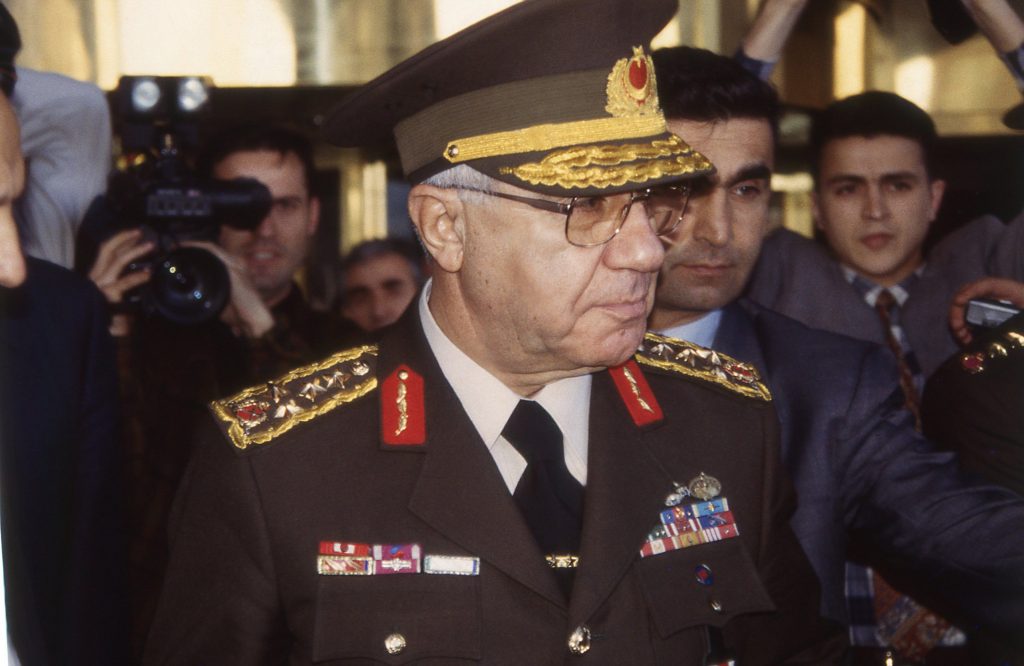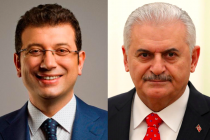Turkey’s former Chief of General Staff Gen. İsmail Hakkı Karadayı has died in hospital from cancer and multi-organ failure. He was aged 88.
The general is best known for orchestrating a non-violent military coup in 1997 that led to the fall of a coalition government led by Islamist Prime Minister Necmettin Erbakan of the Refah (Welfare) Party.
For much of the twentieth century, the Turkish army was the self-appointed guardian of the country’s “secular values”, interfering in government whenever they felt the wellbeing of the state was threatened.
The army became concerned at the political direction of the country after Refah – the forerunner to today’s ruling Adalet ve Kalkınma (Justice and Development) Party – became Turkey’s most popular party after the 1995 General Election.
It was the first time since the Republic’s creation in 1923 that a religious party had the largest number of seats in the Turkish Parliament. Although it was not sufficient for Refah to form a majority government, the results (158 seats from 550) was enough to install Erbakan as Prime Minister in a coalition with the True Path Party (DYP), led by Tansu Çiller.
In a short time, Erbakan’s government set about opening religious schools and re-establishing Tarikatlar (religious sects) as lawful, even though these influential groups had been banned by Mustafa Kemal Atatürk in December 1925.
Fearing that religion was heavily encroaching into the affairs of state, the Chief of General Staff Gen. Karadayı and his team prepared a memorandum in January 1997 that called for the reversal of Erbakan’s policies, and for the advancement instead of secular initiatives.
Tanks rolled on to the streets of Ankara on 4 February as a clear sign to the Erbakan-Çiller government of the military’s intentions. At a meeting of the National Security Council (MGK) on 28 February 1997, the generals led by Karadayı presented their concerns about political Islam and forced Prime Minister Necmettin Erbakan to consent to their demands by signing the memorandum.

The coalition government collapsed soon after and the following year, Refah was closed by the Constitutional Court of Turkey for violating the separation of religion and state. Erbakan and many members of Refah were banned from politics for five years, among them Recep Tayyip Erdoğan. He went on to form AKP with Abdullah Gül, who had served as a Refah Minister in the Erbakan-Çiller cabinet.
Two decades later the highly decorated Karadayı, his former deputy Çevik Bir, and 19 other retired senior military officials were tried and found guilty of plotting a coup. All suspects vehemently rejected the charges, claiming they had not committed any offence, yet were given a life sentence.
Due to their advanced years, the men were not sent to prison, instead having a variety of their freedoms curtailed.
About İsmail Hakkı Karadayı
Born in Çankırı, near Ankara, in 1932, Karadayı completed military high school in 1951. He continued his military education through a variety of leading academies, graduating from the National Security Academy (Milli Güvenlik Akademisi) for military officers in 1975.
After serving as Major General in North Cyprus for two years, he was transferred to the headquarters of Personnel for Turkey’s Land Forces, where he continued to rise through the ranks. In 1985, he was promoted to Lieutenant General and for the next two years he was a Corps Commander, and by 1989 he was promoted to the rank of general.
General Karadayı was appointed Turkey’s 22nd Chief of General Staff (‘Genelkurmay Başkanı’) in 1994 – the country’s most senior military position – a role he served in until his retirement in 1998.
He died at Kadıköy Florance Nightingale Hospital in Istanbul on 26 May 2018. He was married with two children.





